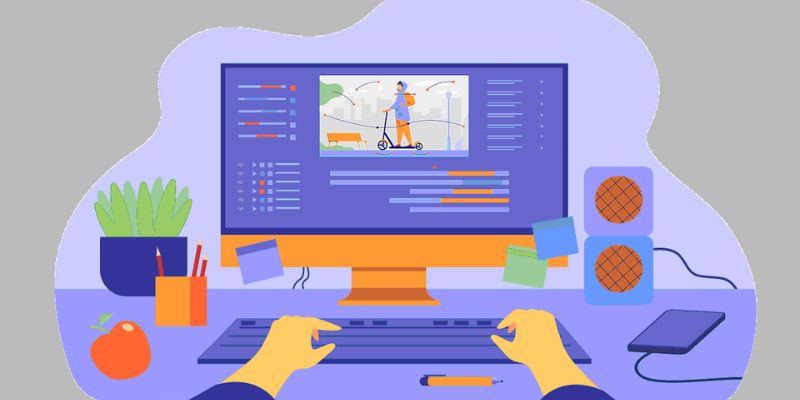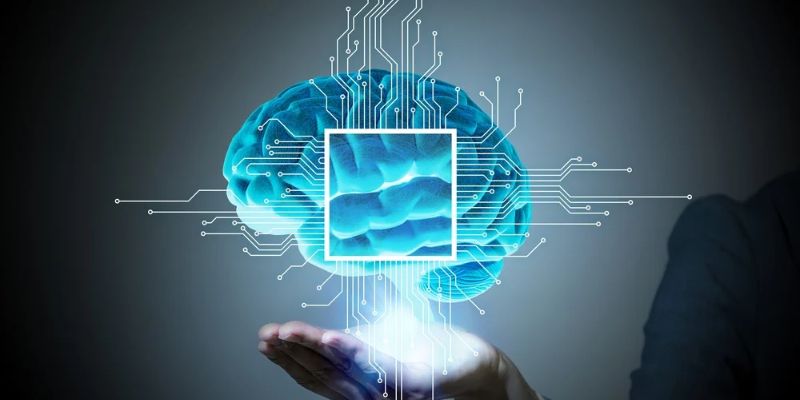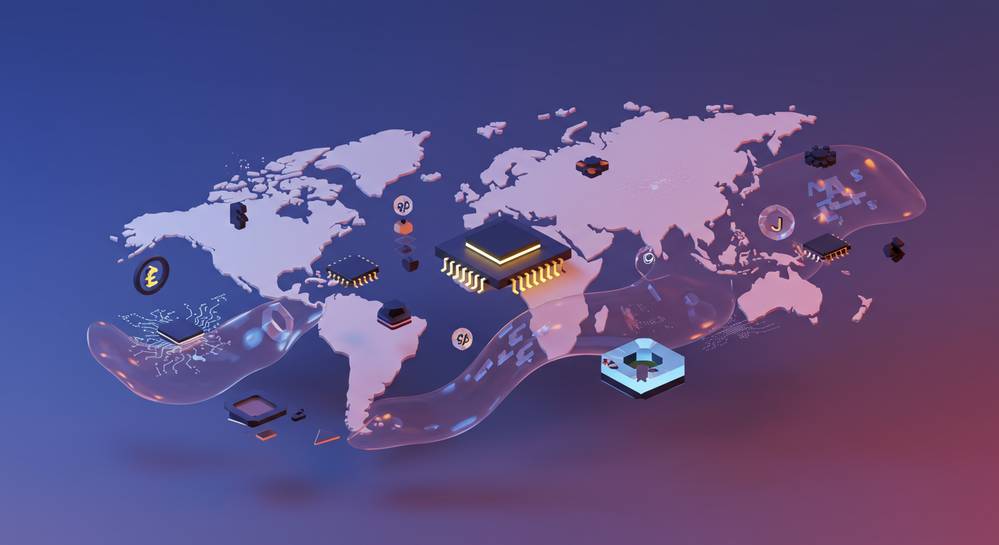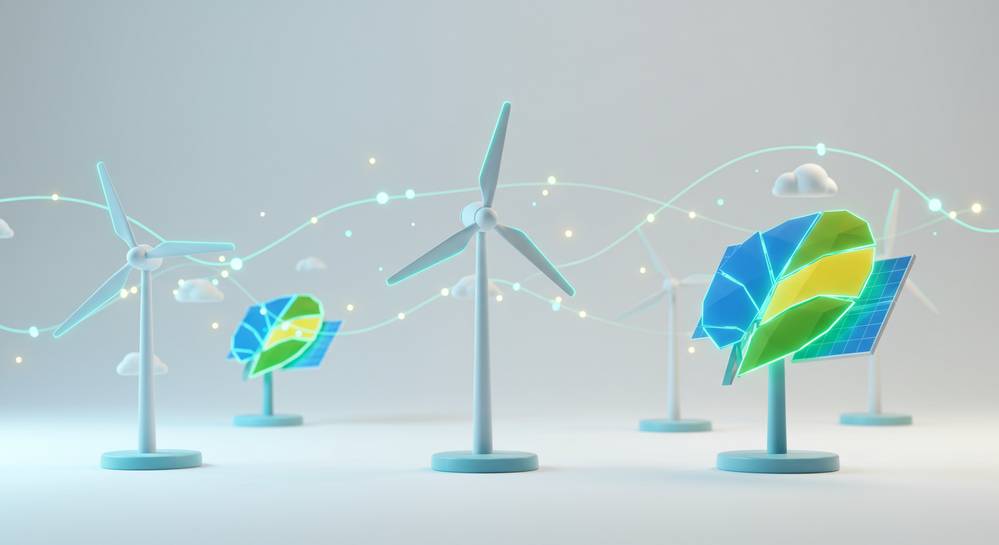How computers will continue to evolve and impact our lives is not just an intriguing idea; it’s a peek into our future. Think of a time when tiny quantum states solve vast problems in seconds, reshaping our world’s fabric. Imagine artificial intelligence so adept, it moves from theory to doing tasks right before our eyes. Envision devices so advanced, they make today’s tech look like child’s play. These advances are no longer dreams—they’re on our doorstep. My mission is to guide you through this next digital frontier, where ethics, privacy, and cybersecurity don’t just matter, they’re the pillars of this new reality. Join me as we unveil how the next digital era will revolutionize every aspect of our lives.
The Dawn of the Quantum Computing Era
Scaling Quantum Processors for Commercial Use
Let’s imagine a future where gadgets of today look like toys. That’s the promise of quantum computing. We’re at a critical point where quantum processors are leaping forward. They’re getting ready for business, solving problems too hard for regular computers.
Quantum computing isn’t just fancy science talk. It’s a new type of machine that uses the strange rules of tiny particles to work. These machines can handle big puzzles in finance, medicine, or even keeping secrets safe.
We can’t do this with the computers we have now. They struggle with very tough problems. But quantum computers deal with these in a snap. They can look at many answers at once, not just one at a time. This is huge for business. We can find the best solutions without wasting time or money.
Right now, these computers are big and picky. They need special rooms and care to work well. But we’re getting better at making them. Soon, they’ll be ready for companies to use every day.
The Potential of Quantum Cryptography
Now let’s talk about keeping secrets safe. With more folks online, it’s a big deal. Quantum cryptography is one answer to this problem. It uses the magic of quantum bits, or “qubits”, to hide information in a way that’s super tough to uncover.
The cool thing about qubits is that they’re tricky. They can be in two states at once. This makes it hard for sneaky folks to get a peek at your secrets. If they try, the qubits change, and we know someone’s messing with them.
This isn’t just good for keeping messages private. It’s good for everyone. Banks, hospitals, and stores online—all need strong ways to keep data safe. Quantum cryptography can do just that. It makes a shield so strong that not even the best hackers can break through.
And here’s the best part — it’s not just an idea. These security methods are being tested right now. They might be keeping your data safe sooner than you think!
In the end, quantum computers will rock our world. They’ll change how we solve problems and protect our digital lives. It’s not just about faster computers. It’s about creating a future where what we can do has no limit. And that’s something we can all look forward to.

Artificial Intelligence and Machine Learning: Driving the Next Wave of Change
Bridging AI with Real-World Applications
AI changes how we live and work. It makes machines smart. AI helps cars drive on their own. It helps doctors find sickness faster. We see it in games, where AI can play chess like a pro. AI is everywhere, and it’s growing fast.
Learning Machines: The Evolution from Theory to Practice
Machine learning is AI’s clever part. It’s like teaching a child. Give a machine examples, and it learns. This learning lets machines predict stuff, like the weather. They can also decide on their own, like sorting pictures. Slowly, this tech moves from just ideas in a lab to real devices we use every day.
Computers with AI help in many ways. In school, they can make learning fun and easy. They give kids new ways to learn. At home, smart devices learn what we like. They turn lights on when we come in. They play our favorite music.
In health, computers spot disease early. This saves lives. Machines look at scans and find things a doctor might miss. They do this really fast, helping more people in less time. Machines learn to make new medicines too. They look at lots of data and spot patterns. This can lead us to cures for hard illnesses.
On farms, computers change how we grow food. They check crops and tell farmers what the plants need. This means better food for us, without wasting stuff. Machines do jobs that are hard or dull. They can pick veggies or clean big spaces.
At work, AI makes jobs easier. It can answer questions for customers or plan the best routes for delivery trucks. This saves time and money.
Machine learning is not just fancy tech. It helps us do things better and faster. It’s like having a super smart helper. As we make it better, it will change our lives even more. It’s an exciting time, and who knows what’s next?
Now, let’s get real. Not everything about AI is great. We worry about privacy. We don’t want machines to make wrong choices. We’re working on making AI safe and fair. We want to make sure it helps everyone, not just some. That’s why we talk about ethics in tech. It’s important to think ahead.
All in all, AI and machine learning are huge in the future of computing. They are key parts of technological advancements in computers. They have a big impact on our lives already. They are growing fast, and they will shape our world in ways we still imagine. It’s like a big wave of change, and we’re on the front of it. Are you ready for the ride?

Harnessing Nanotechnology and Edge Computing for Smarter Devices
Pushing the Boundaries with Nanoscale Innovations
Tiny tech is a big deal. Nanotechnology in computing is changing the game. It makes computers smaller, faster, and better. Picture millions of tiny computers working right in your phone. They are so small, you can’t see them. But they are mighty. Your phone becomes a mini supercomputer. It can solve problems like a pro.
We use special materials to create these tiny wonders. They are just a few atoms wide. They can store loads of info and don’t need much power. Think of a wristwatch that can help doctors spot diseases. Or glasses that can translate a foreign sign as you look at it. That’s the power of nanotech.
Nanotechnology gives us cool new gadgets. It also helps all sorts of industries. Farmers can check their crops with tiny sensors. These sensors talk to each other and share info. They make sure crops grow well. And that means more food with less waste. Nanotech makes a big impact in small packages.
Nanotechnology makes tech we have even better. It helps us pack more power into every chip. So your next phone or computer will be smarter. You can do more without it getting hot or the battery running low. Smart clothes, smart homes, smart cities — it’s all becoming real. Nanotech helps us dream up the future and then build it.
The Strategic Shift Towards Edge Computing Infrastructure
Now, let’s talk about edge computing. It’s a fresh way to handle all the data we create every day. With edge computing, data gets processed close to where it’s made. Your smartwatch, your home security camera, your video game — all are examples. No need to send everything far away to the cloud.
Edge computing means less wait time. It’s fast, like the flash of a camera. You get answers now, not later. It’s like having a smart helper right where you need it. This means you can make smart choices in real-time. Whether it’s a car that avoids accidents or an appliance that saves energy, edge computing is there.
Privacy gets better with edge computing too. Your data can stay with you. It doesn’t have to travel across the internet. So, there’s less chance for snoops to grab it. It’s a win for keeping your stuff safe. Edge computing keeps you in the driver’s seat for your privacy.
Healthcare, gaming, shopping — everything gets an upgrade with edge. Your doctor can get health data super quick. Games feel real with no delays. Shopping online is smooth as silk. And it’s not just for now. Edge computing will keep getting better. We’ll find ways it can help us that we haven’t even thought of yet.
So, think micro but dream giant. Nanotech and edge computing are shaping our world. They make our devices smarter, work faster, and lift our lives to new highs. It’s a thrilling time in tech. And we’re just getting started.

Securing the Digital Future: Ethics, Privacy, and Cybersecurity Trends
Navigating Ethical Dilemmas in the Age of AI
The future of computing isn’t just about speed or power. It’s about making the right choices. As we train machines to be smart, we face tough questions. What’s fair for AI to decide? How do we keep AI helpful, not harmful? We must stay wise, ensuring AI serves everyone well.
Artificial Intelligence, or AI, is getting smarter each day. But as AI grows, so do our ethical concerns. We’re teaching AI to think. To make it right, we must teach it our values too. That’s how we make sure AI helps, but doesn’t hurt.
The impact of artificial intelligence is huge. It’s in phones, cars, homes. With great power, comes a need for great care. By setting rules for AI, we can all feel safer. We guard against letting machines make wrong choices for us. In short, we control AI, so it doesn’t control us.
Strengthening Defenses with Advanced Cybersecurity Protocols
Computers are our daily sidekicks. We shop, chat, learn, play. But while we click and swipe, we must also guard our digital doors. Hackers are out there. They’re smart but we can be smarter. Cybersecurity keeps our secrets safe and our digital lives sound.
Cybersecurity trends change as threats do. Think of it like a never-ending game of tag. We stay ahead with stronger locks and clever traps for hackers. This world of zeros and ones is a battleground. And we are always leveling up.
As the people who make computers, we have big jobs. We stop bad folks from sneaking in. We lock up data tight, keeping the keys safe. With smart tech like blockchain, we track who sees what. Tech gets stronger, so our defenses must too.
As we chat on phones or work from home, in the back, cyber warriors fight for us. They use skills to keep our photos, talks, even money safe from thieves. Just think, they are the heroes every time you log in. We all must thank these silent guardians of our tech-filled world.
The future shines bright with tech wonders. Computers will evolve, solving problems big and small. It’s a thrilling ride, but safety is key. As new gizmos pop up, we will face fresh tests. Our charge is clear: embrace the tech age, but keep a sharp eye.
So, picture this: a world where computers do much more. They work for us, play for us, learn for us. And all the while, they stay in line, playing fair and guarding our secrets. That’s the tech future we’re after. Growing, yes, but ever mindful of the digital tightrope we walk on.
We’ve peeked into the future with this blog post, exploring realms where science fiction is becoming science fact. Quantum computing is no longer a distant dream. It’s scaling up, ready to unlock new potentials in cryptography. Imagine safe, unbreakable codes keeping our data secure.
We also dived into AI and machine learning. These aren’t just buzzwords; they’re tools reshaping industries by bridging gaps between raw data and real-world uses. They’re evolving, learning from practice, not just theory.
Then we looked at how tiny tech, nanotechnology, and edge computing are making smarter, faster devices a reality. Devices are getting tinier, yet their impact is growing.
Lastly, we tackled the tough stuff: ethics, privacy, and cybersecurity. AI’s rise brings tricky questions, but we’re building stronger defenses day by day.
As these fields evolve, so do the opportunities and challenges. Each step forward in tech gives us better tools and bigger questions. It’s a thrilling time, and we should all pay close attention to where these advances are taking us. The future is here, and it’s full of possibility. Let’s navigate it wisely.
Q&A :
How are computers expected to evolve in the next decade?
With continuous advancements in technology, computers are expected to become even more powerful, energy-efficient, and compact. The integration of artificial intelligence (AI) will likely lead to more autonomous and intuitive interfaces. Quantum computing could revolutionize the way we process information, while edge computing might enhance real-time processing and data analysis.
What role will computers play in future human life?
As computers evolve, they will amplify their role in everyday life, from personalized healthcare and education to advanced manufacturing and transportation systems. Smart homes, cities, and even entire infrastructures will likely rely heavily on advanced computing systems for management and operational efficiency, making computers more ingrained in our routines and societal functions.
How might artificial intelligence affect the evolution of computers?
Artificial Intelligence is poised to be a driving force in the evolution of computers, providing the ability to process vast amounts of data more quickly and making decisions or predictions based on that data. AI could lead to the creation of more adaptive and responsive systems, impacting numerous fields such as healthcare, finance, and transportation, and potentially changing the job market as automation becomes more prevalent.
Will quantum computing change everyday computer use?
While quantum computing is still in its developmental stages, it has the potential to significantly change computer use by solving complex problems that are currently infeasible for traditional computers. However, its practical everyday applications for consumers may take some time to manifest. When it does, it could greatly impact fields like cryptography, material science, and pharmaceuticals by performing computations that are beyond the scope of today’s computers.
How can we ensure computers continue to have a positive impact on society?
To ensure computers continue to benefit society, it’s important to address ethical considerations and the digital divide. Education on digital literacy, responsible AI development, data privacy, and cybersecurity must be prioritized. Additionally, creating inclusive technology and improving access to computing resources for underprivileged communities can help mitigate inequalities and enhance the universal positive impact of computer evolution.



